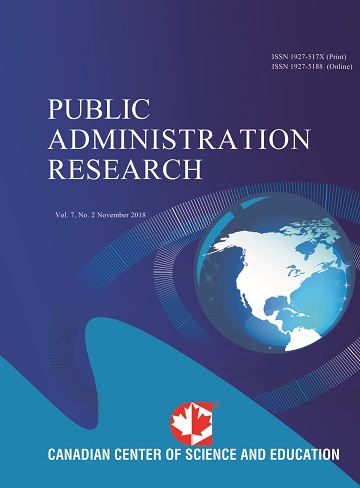Reasons for Reluctance to Participate in the Parliamentary Elections of the Nineteenth Parliament for the Year 2020 in the Jordanian Capital, Amman
- Ghazi Fanatel AL Atnah
- Ahmad Hani Al-Qatawneh
- Safia M. Jabali
- Abdelraouf Hameed Alyamani
Abstract
This study aimed to reveal the reasons for the reluctance to participate in the parliamentary elections of the nineteenth parliament for the year 2020 in the Jordanian capital, Amman. A questionnaire was developed for this purpose, which included (30) items distributed over four dimensions, each dimension representing a general reason for the reluctance to participate in the parliamentary elections. The acceptable parameters of validity and reliability of the questionnaire were achieved. The questionnaire was applied to an available sample consisting of (1223) individuals who did not participate in the parliamentary elections in the Jordanian capital, Amman. The results of the study revealed that the most common reasons for reluctance to participate in the parliamentary elections of the nineteenth parliament for the year 2020 in the Jordanian capital, Amman, were "the reasons related to the candidates," while it came in the fourth and final rank domain: "the reasons related to the Corona pandemic." The results also showed that the most common reason for the reluctance to participate in the parliamentary elections related to voters was the fifth reason: "I did not find anyone to represent me in the parliament among the candidates." That the most common reason for the reluctance to participate in the parliamentary elections related to the candidates was the ninth reason: "The spread of corruption among members of the parliament in appointments and promotions". The most common reason for the reluctance to participate in the parliamentary elections related to the independent body was the reason (22), which states: "The independent body was unable to control candidates from using political money in the elections," and that the most common reason for refraining from participating in the parliamentary elections related to the Corona pandemic was the reason ( 29) and its text: "People's lack of commitment to health measures such as social distancing and wearing a mask." In light of the results of the current study, the researchers recommend finding effective formulas to ensure broader participation in the parliamentary elections, employing various social media to support and enhance participation in parliamentary elections, and tightening supervision and punishment to prevent the spread of practices related to political money, the existence of real and serious procedures to ensure the integrity of the elections, the development of awareness programs for the citizen on the basis for choosing a representative, the adoption of standards of morality, integrity and hard work of the candidate when voting, and conducting various studies on the issue of the reasons for reluctance to vote in parliamentary elections and their relationship to social, demographic and political variables.
- Full Text:
 PDF
PDF
- DOI:10.5539/par.v11n2p34
Journal Metrics
h-index (2017): 7
i10-index (2017): 6
h5-index (2017): 7
h5-median (2017): 13
Index
- COPAC
- CrossRef
- DTU Library
- EBSCOhost
- EuroPub Database
- Excellence in Research for Australia (ERA)
- Genamics JournalSeek
- Ghent University Library
- Google Scholar
- Harvard Library
- Infotrieve
- Jisc Library Hub Discover
- LOCKSS
- Mir@bel
- Norwegian Centre for Research Data (NSD)
- Open J-Gate
- PKP Open Archives Harvester
- Publons
- ROAD
- Scilit
- SHERPA/RoMEO
- Stanford Libraries
- Ulrich's
- UniCat
- Universe Digital Library
- UoS Library
- WorldCat
Contact
- Gabriel TaiEditorial Assistant
- par@ccsenet.org
